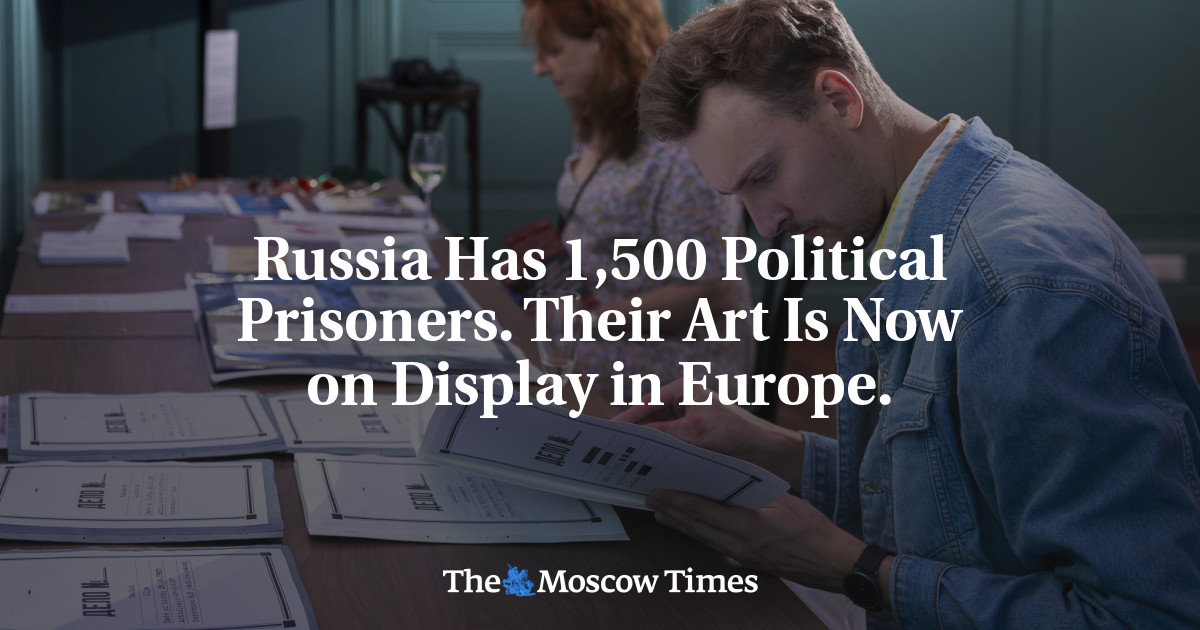
Russia Has 1,500 Political Prisoners. Their Art Is Now on Display in Europe.
How did your country report this? Share your view in the comments.
Diverging Reports Breakdown
Russia Has 1,500 Political Prisoners. Their Art Is Now on Display in Europe.
At least 1,500 people are imprisoned in Russia for political reasons. Many of them turn to art as a form of self-expression and therapy. Perviy Otdel has teamed up with the Nobel Peace Prize-winning human rights organization Memorial to collect these artworks. These pieces comprise the Prisoners of Conscience installation at Artists Against the Kremlin, an art exhibition co-organized by The Moscow Times in Amsterdam. It’s hard for me to say how the other projects have changed, but Pervy OTDel was launched in exile. The main problem that has emerged over the past couple of years is the risk of persecution of people who cooperate with us from Russia. We have to think about whether we really need to publish information about our clients’ cases. It is very easy to personally relate to stories like this. Most of the artists whose drawings we submitted to the exhibition have never been involved in politics, journalism or activism. They are ordinary people.
Exhibitions help political prisoners in a psychological sense. One man managed to get everything he needed to paint, created some works, some of which were smuggled out and sent to me, and I passed them on to the exhibition organizers. Thousands of people will see these drawings, and perhaps some of them will write to the artist, share their impressions or offer support. This won’t set the person free; he’ll still be in prison and will remain there for the next few years or decades. But life goes on — his drawings are being exhibited abroad, and he can interact with the world in this way. Some prisoners have children. For example, Polina Yevtushenko, who is facing 22.5 years in prison for talking about mobilization and posting anti-war messages on Instagram, has a six-year-old daughter who is still free. I think when she gets older, she will enjoy looking back at the photos and publications about her mother and her drawings. MT: How did the cooperation with Memorial come about? YS: We created this exhibition together with Memorial. Getting drawings out of prison is not an easy process, so we thought it was right to combine our two collections of drawings. Initially, we started collecting the works of political prisoners separately from each other and weren’t aware that the other was also doing it.
MT: Artists Against The Kremlin explores how the Kremlin’s practices are infecting other countries, similar to a virus. Does this message resonate with you, or how do you understand your place in the exhibition? YS: Yes, it resonates. Unfortunately, I can’t influence this in any way, but I can show that ordinary people always suffer from the ambitions of dictators. Most of the artists whose drawings we submitted to the exhibition have never been involved in politics, journalism or activism. They are ordinary people. Yevtushenko, for example, was detained while leaving a kindergarten where she had taken her daughter. It is very easy to personally relate to stories like this. MT: How has the role of organizations like Perviy Otdel and Memorial changed now that many of you have to operate in exile? YS: It’s hard for me to say how the other projects have changed, but Perviy Otdel was launched in exile. The people who created the project in 2021 were forced to leave due to repression in the summer of 2021. The main problem that has emerged over the past couple of years is the risk of persecution of people who cooperate with us from Russia. These are lawyers, attorneys and volunteers. Perviy Otdel is recognized as a ‘foreign agent’ in Russia, and repression is constantly intensifying. We have to play it safe and think 10 times about whether we really need to publish information about one of our clients’ cases.
